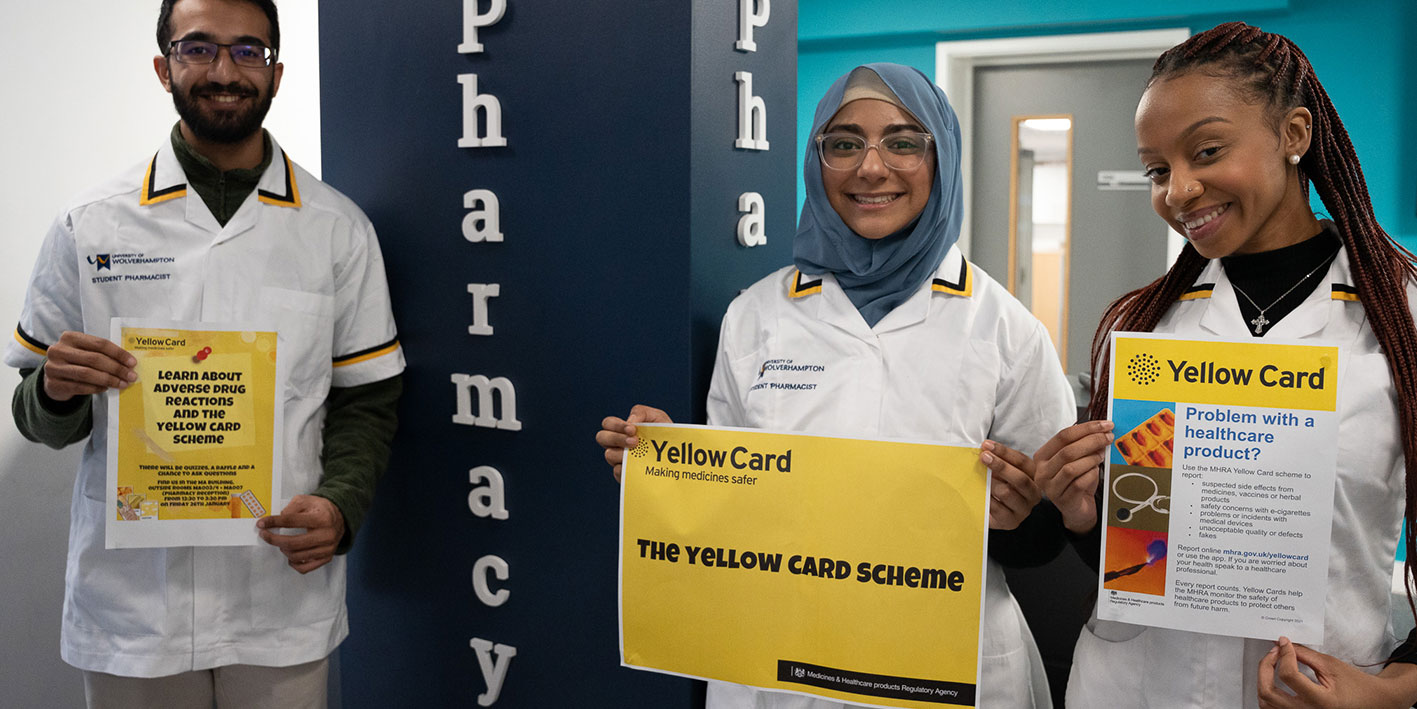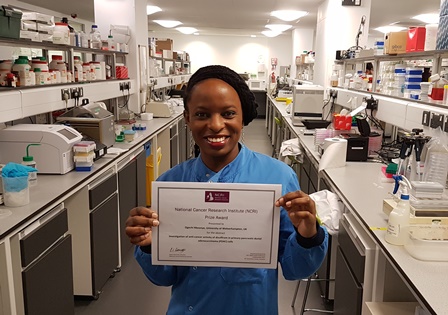
Student scoops national cancer award
A University of Wolverhampton student has scooped an award for her work into cancer research.
Ogechi Nkeonye, originally from Nigeria and studying for a PhD in Biomedical Science in the Faculty of Science and Engineering, was presented with the award along with a £250 bursary by the National Cancer Research Institute (NCRI) at its national conference held recently in Liverpool.
The award was for her work as part of the cancer research team which is investigating the effectiveness of using a treatment for alcoholism, Disulfiram, to treat pancreatic cancer. Ogechi presented some of her work at the conference.

Ogechi said: “I’m blessed to be able to work as part of a very supportive team of committed and dedicated individuals. I work in the laboratory all week and am already seeing some very positive results. I’m honoured to have received this recognition from the National Cancer Research Institute and it was wonderful to profile the work of the team on a national platform.”
There are currently very few treatments for pancreatic cancer and less than 7% of people survive for five years or more after diagnosis in the UK.
More than 800 people are diagnosed with pancreatic cancer in the West Midlands on average every year. Survival has barely improved over the past 40 years and, despite this, over the last decade only one per cent of the total UK cancer research spend has been dedicated to the disease.
The team is currently looking at whether Disulfiram can be used to effectively treat pancreatic cancer after the University was awarded more than £73,000 by Pancreatic Cancer UK.
Disulfiram can be used to kill cancer cells, but it can only survive in the bloodstream for around four minutes.
Professor Weiguang Wang, Professor of Experimental Cancer Therapeutics at the University, said that if his team is able to develop a new delivery system which allows Disulfiram to stay in the bloodstream for longer periods of time, they could test how effective the drug is at killing pancreatic cancer cells.
“We’re very pleased our research was chosen for funding and that we have been able to continue our work with Disulfiram and test its effectiveness in treating pancreatic cancer.
“Current treatment options for pancreatic cancer are limited, and most patients diagnosed with the disease have a poor prognosis. This is an extremely promising area of investigation and if we’re successful, could lead to new options to improve outcomes for people with pancreatic cancer.”
The grant was awarded as part of Pancreatic Cancer UK’s fourth annual Research Innovation Fund (RIF) grants scheme.
ENDS
For more information please contact the Media Relations Office on 01902 32 2736 or 01902 518647.
For more information please contact the Corporate Communications Team.


/prod01/wlvacuk/media/departments/digital-content-and-communications/images-2024/240328-Varsity-Line-Up-Resized.jpg)
/prod01/wlvacuk/media/departments/digital-content-and-communications/images-18-19/220325-Engineers_teach_thumbail.jpg)
/prod01/wlvacuk/media/departments/digital-content-and-communications/images-2024/240404-Digital-Humanities-Training-Resized.jpg)
/prod01/wlvacuk/media/departments/digital-content-and-communications/images-2024/240320-Uzbekistan-Resized.jpg)
/prod01/wlvacuk/media/departments/digital-content-and-communications/images-2024/240229-The-Link-Resized.jpg)
/prod01/wlvacuk/media/departments/digital-content-and-communications/images-2024/240404-Pharmacy-Students-Resized.jpg)

